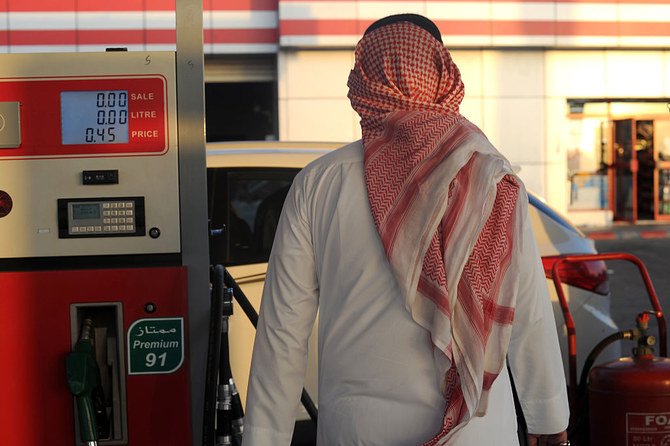
- ARAB NEWS
- 14 Jul 2025

Arab News
RIYADH: Saudi Arabia on Saturday announced it was putting a price cap on gasoline from July 10 to support local consumption and economy growth, as oil prices hit multi-year highs this year.
It is the first time the country is capping prices since it first liberalized them in 2018 and linked them to international price movement.
The Kingdom issued a royal directive to keep gasoline prices at SR2.18 ($0.58) for octane 91 and SR2.33 for octane 95, the Saudi Press Agency reported, citing the Energy and Water Price Reforms Executive Committee.
“This stems from the leadership’s keenness to reduce the living burdens of citizens and residents, its continuous pursuit to achieve the public interest, and support local economic activity,” according to an official statement, which also said the government would bear any costs that may result from the differences in pricing.
“Housing and energy costs constitute 25 percent of the inflation basket for Saudi consumers, so reducing the energy burden on households is a very supportive decision for the Saudi economy as it will free more disposable income for spending on other activities that will boost growth,” Mazen Al-Sudairi, head of research at Al Rajhi Capital, told Arab News.
According to the royal directive, the prices of gasoline for July, which saw octane 91 increase to SR2.28 and octane 95 rise to SR2.44, would be subject to the approved cap and that the periodic review of prices would continue without exceeding the aforementioned cap.
Oil rose to a six-year high last week after OPEC+ was unable to reach an agreement to ratify a production increase, spurring concerns of a supply shortfall and further oil price hikes.
Fuel consumption is rising in countries such as the US, India and China during the summer driving season. Travelers in the US have hit the road with gusto, leading to rapidly draining inventories and refineries running close to full-bore to keep up with demand.
Oil in London and New York is trading above $74 and Goldman Sachs predicted that oil prices would hit $80 later this year.